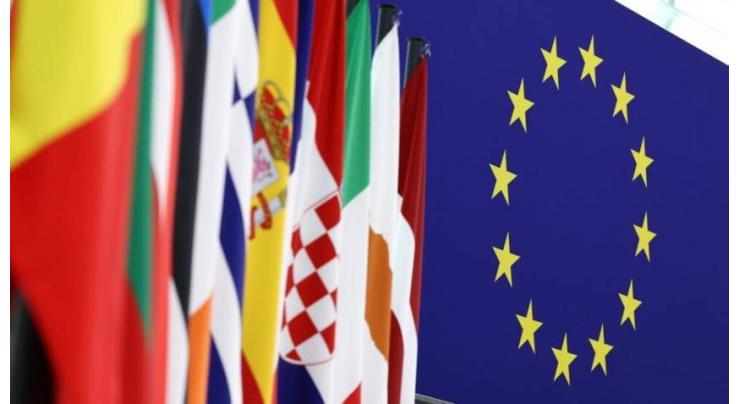
Big Tech Told To Identify AI Deepfakes Ahead Of EU Vote
Umer Jamshaid Published March 26, 2024 | 09:56 PM

The EU called on Facebook, TikTok and other tech titans on Tuesday to crack down on deepfakes and other AI-generated content by using clear labels ahead of Europe-wide polls in June
Brussels, (APP - UrduPoint / Pakistan Point News - 26th Mar, 2024) The EU called on Facebook, TikTok and other tech titans on Tuesday to crack down on deepfakes and other AI-generated content by using clear labels ahead of Europe-wide polls in June.
The recommendation is part of a raft of guidelines published under a landmark content law by the European Commission for digital giants to tackle risks to elections including disinformation.
The EU executive has unleashed a string of measures to clamp down on big tech, especially regarding content moderation.
Its biggest tool is the Digital Services Act (DSA) under which the bloc has designated 22 digital platforms as "very large" including Instagram, Snapchat, YouTube and X.
There has been feverish excitement over artificial intelligence since OpenAI's ChatGPT arrived on the scene in late 2022, but the EU's concerns over the technology's harms have grown in parallel.
Brussels especially fears the impact of Russian "manipulation" and "disinformation" on elections taking place in the bloc's 27 member states on June 6-9.
In the new guidelines, the commission said the largest platforms "should assess and mitigate specific risks linked to AI, for example by clearly labelling content generated by AI (such as deepfakes)".
The commission recommends that big platforms promote official information on elections and "reduce the monetisation and virality of content that threatens the integrity of electoral processes" to diminish any risks.
"With today's guidelines we are making full use of all the tools offered by the DSA to ensure platforms comply with their obligations and are not misused to manipulate our elections, while safeguarding freedom of expression," said the EU's top tech enforcer, Thierry Breton.
While the guidelines are not legally binding, platforms must explain what other "equally effective" measures they are taking to limit the risks if they do not adhere to them.
The EU can ask for more information and if regulators do not believe there is full compliance, they can hit the firms with probes that could lead to hefty fines.
Recent Stories

ADB reaffirms continued support to Pakistan

OIC Contact Group on Jammu & Kashmir calls for early resolution of J&K dispute

Yango joins hands with Discover Pakistan to present and preserve the country’s ..

Saudi govt, companies consider Pakistan high priority economic opportunity: Ibra ..

Saudi Crown Prince expected to visit Pakistan this month

Currency Rate In Pakistan - Dollar, Euro, Pound, Riyal Rates On 6 May 2024

Today Gold Rate in Pakistan 06 May 2024

Dubai Mum Becomes the First Ever Pakistani Woman to Climb 11 of the 14 Highest M ..

Over 37% Tobacco tax increase suggested to save lives, boost revenue

Mohsin Naqvi has offered a substantial incentive, pledging $100,000 to every pla ..

Citizens join Al Barsha Police in “An Hour for Dubai” Initiative

Art can be a powerful tool to relieve stress, Experts say at Sharjah Children’ ..
More Stories From World
-
Mbappe and PSG aim to seize moment in Champions League semi-final
9 minutes ago -
Israel army says about 100,000 people being evacuated from east Rafah
19 minutes ago -
Putin orders nuclear drills with troops near Ukraine
49 minutes ago -
China's Shenzhen home to more superchargers than petrol stations
59 minutes ago -
Ode to joy: How Austria shaped Beethoven's Ninth
59 minutes ago -
Lebanon's Hezbollah says fired dozens of rockets at Israeli base
59 minutes ago
-
China to expedite building modern eco-environment monitoring system
1 hour ago -
Putin orders nuclear drills with troops near Ukraine
1 hour ago -
'Sound of silence' for troubled Milan as Juve inch towards Champions League
1 hour ago -
Wildfires increase in Mongolia
1 hour ago -
McLaren's Norris wins Miami Grand Prix
1 hour ago -
EU's soaring far-right parties set to stay
1 hour ago